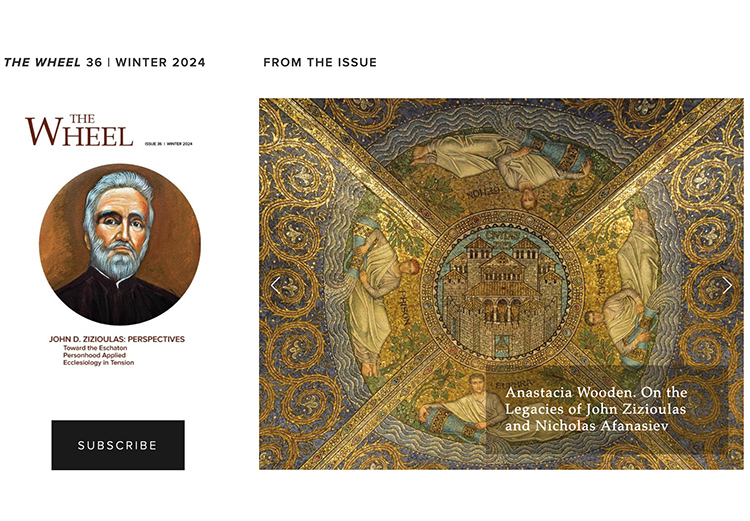John D. Zizioulas: Perspectives
The passing in 2023 of John D. Zizioulas, Metropolitan of Pergamon, signified to some the closing of a modern patristic era. Despite the relative brevity of his theological oeuvre, Zizoulas’s impact on contemporary Orthodox theology was fully on par with that of the other giants of the twentieth-century Orthodox religious renaissance. His contributions to Christian anthropology, ecclesiology, and eschatology influenced and will continue to inspire generations of scholars. His anthropological thinking in particular offers Orthodoxy a unique approach to engage modern social and ethical challenges. The Wheel embraced the opportunity to present a special issue on the legacy of this great thinker.
We thank our guest editor Nikolaos Asproulis for taking on this project, in what is becoming a happy tradition (in 2021, Asproulis edited a special issue of The Wheel on Sergii Bulgakov). By engaging a diverse group of authors, Asproulis introduces the breadth of Zizioulas’s thinking, from the more familiar subjects of anthropology and ecclesiology to the Metropolitan’s impact on gender, politics, and soteriology. The issue also includes critical contributions on Zizioulas’s engagement with other contemporary Orthodox theologians, as well as a previously unpublished text by Zizioulas that addresses his eschatological and anthropological ideas. The cover features a portrait of Metropolitan John by Maxim (Vasiljević), Bishop of Western America of the Serbian Orthodox Church, one of the volume’s authors.
From the Foreword by Nikolaos Asproulis
This special issue begins with the publication of a text by Metropolitan John on eschatological ontology that never appeared before in print, a text delivered as a talk in 1999.
In the next part of this issue, respected interpreters of Zizioulas’s work unpack the existential premises of his work by examining the theological importance of the eschaton as a state, condition, and outlook that defines and judges everything that exists (Bishop Maxim Vasiljević, Nikolaos Asproulis). Other authors point to the relevance of the Metropolitan’s thinking in areas with which Orthodox theology still struggles to come to terms, such as truth-telling as an existential jump of the faithful toward enlightenment in the divine truth (Aristotle Papanikolaou), sexuality and gender (Spyridoula Athanasopoulou-Kypriou), and democratic values (Dionysios Skliris).
The final set of articles explores the late Metropolitan of Pergamon’s dialogues with eminent representatives of twentieth-century Orthodox theology, such as Father Dumitru Stăniloae (Paul Ladouceur), Nicholas Afanasiev (Anastacia Wooden), and Kallistos Ware, the late Metropolitan of Diokleia (Aristotle Papanikolaou). The latter text examines the interaction between the personal and the ascetical, a critical aspect of Zizioulas’ theology. This aspect is also discussed in a review of a recent collection of texts by Metropolitan John, in which he responds to the critique that he undervalues the ascetical dimension of life in Christ.


